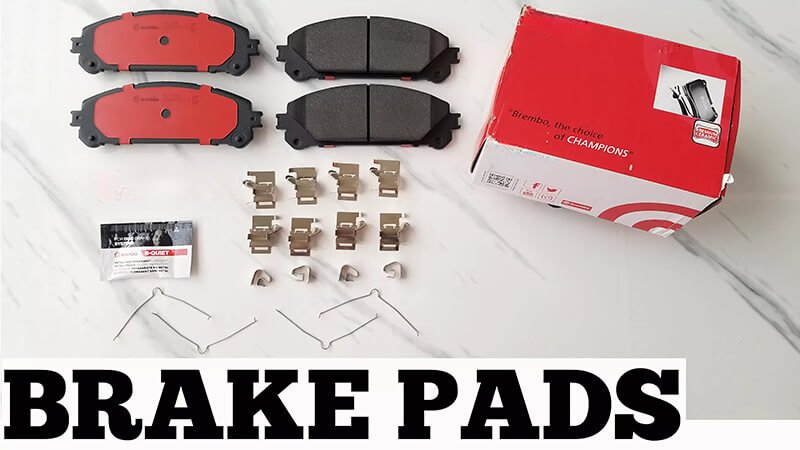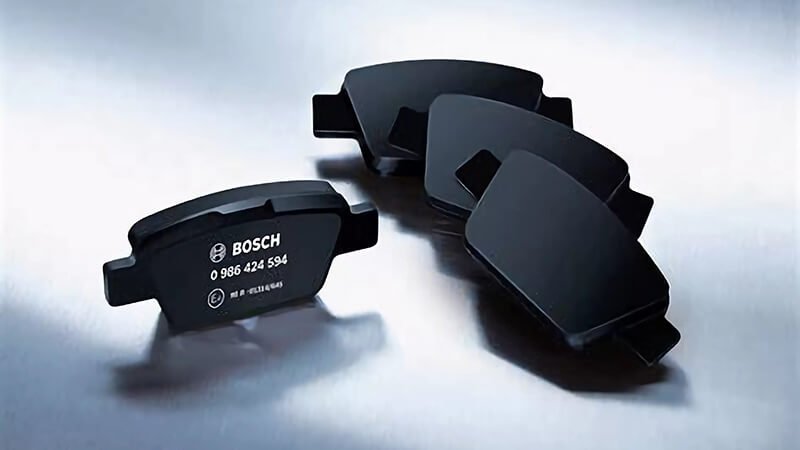Brake pads rubbing against the rotors is a common issue in many vehicles, often causing a frustrating grinding or scraping sound. It’s more than just a noise; it indicates a deeper issue that could lead to premature wear or even damage to your brake system. How do you stop your brake pads from rubbing on the rotors? Let’s explore the reasons behind this problem and the solutions you can apply.
Brake pads rubbing on rotors usually happens when the calipers are misaligned or when the brake pads are not fully retracting. This can lead to inefficient braking, excessive wear, and overheating. The solution often involves recalibrating the caliper, ensuring the pistons retract properly, or replacing any worn-out components.
With the basic understanding of the issue at hand, it’s essential to investigate the specific causes of brake pads rubbing on rotors. Understanding these reasons can help in addressing the problem effectively and avoiding future occurrences. Let’s delve into the causes of this issue and how to fix it properly.

Why Are My Brake Pads Sticking to My Rotors?
Brake pads that are sticking to rotors can cause both performance issues and safety concerns. The sensation of brakes dragging, or a decrease in braking efficiency, could be a sign of a serious issue in your brake system. So, why do your brake pads stick to the rotors, and how can you stop this from happening?
Sticking brake pads are often the result of malfunctioning calipers, debris buildup, or inadequate lubrication. When the calipers fail to release properly or rust and dirt accumulate, the brake pads fail to retract as they should, causing continuous contact with the rotors. Proper maintenance is essential to solve this issue.
There are a few key reasons brake pads may stick to the rotors, and addressing them requires attention to the whole brake assembly. One major cause is a misaligned or malfunctioning caliper. The caliper plays a crucial role in pressing the brake pads against the rotors when the brake pedal is pressed. If it doesn’t retract fully after the pedal is released, the brake pads remain in contact with the rotor, causing friction and generating heat. This constant heat can lead to premature wear on both the pads and the rotors, affecting overall braking performance.
Causes of Sticking Brake Pads:
| Cause | Description | Solution |
|---|---|---|
| Misaligned Caliper1 | If the caliper is bent or misaligned, it might not release the pads fully. | Realign or replace the caliper to ensure proper function. |
| Lack of Lubrication2 | Inadequate lubrication of the caliper pistons or pins causes resistance and sticking of the pads. | Apply the proper lubricant to the necessary moving parts. |
| Rust or Debris Build-up3 | Accumulation of dirt and moisture can cause rust on the brake components, leading to sticking. | Clean the system regularly and apply anti-corrosion treatments. |
| Worn Out Brake Pads | Thin or damaged pads may not sit properly in the caliper, causing them to stick. | Replace the brake pads with new, high-quality components. |
It’s also important to remember that rust or debris build-up can cause the brake components to stick. Brake parts naturally accumulate dust, dirt, and moisture, and if not regularly cleaned, they can impede the proper functioning of the brake system. In this case, cleaning and servicing your brakes are essential.
Finally, check for lubrication issues. Lack of lubrication between the brake pads and caliper can cause resistance, preventing the pads from fully retracting. Apply grease to the necessary parts to ensure smooth operation.

Can You Spray WD-40 on Brakes?
When your brakes are squeaking or not performing optimally, it’s tempting to think that a quick fix might involve using products like WD-40. But is WD-40 safe to use on your brake system? Let’s break down why this popular lubricant isn’t the right choice for automotive brakes.
WD-40 is not suitable for brake systems. While it works well for many tasks, it leaves behind a greasy residue that can reduce friction between the brake pads and rotors, compromising safety. Use a dedicated brake cleaner instead to properly maintain your braking components.
WD-40 is widely known for its versatility in lubricating, rust prevention, and moisture displacement, but it is not suitable for use on automotive brakes. Brake systems rely on high friction to ensure safety, and applying a lubricant like WD-404 could reduce that friction, making the brakes less effective. When WD-40 is sprayed on the brake pads or rotors, it forms a greasy film that interferes with the braking process, resulting in decreased braking performance.
Key Issues with Using WD-40 on Brakes:
| Issue | Description | Consequence |
|---|---|---|
| Greasy Residue | WD-40 leaves a greasy film, which reduces the friction required for braking. | Reduced braking power, longer stopping distances, and unsafe driving conditions. |
| Attracts Dirt and Debris | The lubricant attracts dust and dirt from the road, which can further affect braking performance5. | Further contamination of the brake system and increased wear. |
| Incompatible with Brake Systems | WD-40 is not designed for high-temperature environments and could fail under braking heat. | It can degrade or wear off quickly, leading to performance loss. |
Instead of WD-40, use a brake-specific cleaner6 that’s designed to break down the buildup of dust, oil, and grease on your brake system. These cleaners ensure that the pads and rotors are free from contaminants without leaving harmful residues behind.

Why Do My Brakes Make a Rubbing Sound on My Rotors?
Hearing a rubbing or grinding sound when you brake is never a good sign. It typically points to issues like misalignment, worn-out brake components, or debris caught between the pads and rotors. But why exactly do your brakes make a rubbing sound, and how can you fix it?
Rubbing sounds from brakes are often caused by misalignment, dirty rotors, or worn brake pads. If the pads are not properly aligned with the rotor or if debris gets stuck between the two, you’ll hear that annoying noise. Regular inspection and maintenance can resolve this issue.
Rubbing noises are generally caused by physical contact between the brake pads and the rotor in areas where they shouldn’t be in contact. One of the most common reasons for this is brake pad misalignment7. Over time, the brake pads can become slightly off-center, either due to wear or incorrect installation. This misalignment causes the pads to rub against the rotor surface, producing the characteristic rubbing or grinding sound.
Another possible cause is debris build-up8. Brake pads and rotors naturally accumulate dirt, dust, and moisture from the road. These contaminants can get trapped between the rotor and the pads, causing friction and making a rubbing noise. Regularly cleaning the brake components and inspecting for debris can prevent this issue.
Causes of Rubbing Noises:
| Cause | Description | Solution |
|---|---|---|
| Misaligned Brake Pads | Brake pads may become misaligned, leading to uneven contact with the rotor. | Re-align the brake pads or replace them if they’re worn. |
| Dirt and Debris | Dust, dirt, and other particles may be caught between the pads and rotors, causing friction. | Clean the brake system thoroughly and inspect for contamination. |
| Worn Brake Pads or Rotors | If the brake pads or rotors are excessively worn, they might cause uneven contact. | Replace the worn parts with high-quality replacements. |
| Incorrect Installation | Improper installation of brake components can lead to rubbing noises. | Ensure all parts are correctly installed by a professional. |
If your brake pads are worn down to a certain point or if the rotor has become grooved from extended use, it’s time to replace the parts. Continuously driving with worn-out components can damage the entire brake system, making repairs more costly in the long run.

Why Are My Brake Pads Dragging on My Rotors?
Brake pads dragging on rotors is a serious issue that can lead to overheating, poor braking performance, and significant damage to the brake system. If your brake pads are constantly in contact with the rotor, the reason could be related to caliper malfunction or hydraulic issues. Let’s dive deeper into why this happens and how to prevent it.
When brake pads drag on the rotors, it’s often due to a malfunctioning caliper, brake fluid issues, or worn-out parts. The caliper may fail to release fully, or hydraulic issues may prevent the system from disengaging. Regular maintenance can prevent this problem.
Dragging brake pads9 occur when the caliper does not fully release the brake pads from the rotor. This can happen when the caliper slides or pistons become stuck due to corrosion or wear, causing the pads to remain in constant contact with the rotor. This continuous friction leads to overheating, increased wear, and can even result in warped rotors or brake failure.
Another factor contributing to brake pad dragging is the hydraulic system. If there is an issue with the brake fluid or if the master cylinder is malfunctioning, the pressure that operates the caliper may not fully retract, causing the pads to drag. Contaminated or low brake fluid can contribute to this problem, which is why regular fluid checks are necessary.
Common Causes of Dragging Brake Pads:
| Cause | Description | Solution |
|---|---|---|
| Stuck Caliper Pistons10 | If the pistons are stuck, the brake pads won’t retract properly after braking. | Clean, lubricate, or replace the caliper pistons. |
| Hydraulic System Problems | Faulty brake fluid, air in the lines, or malfunctioning components can prevent proper brake release. | Flush the brake fluid, check for leaks, and replace faulty components. |
| Worn or Incorrectly Installed Brake Pads | Worn or incorrectly installed pads may not sit properly in the caliper, causing drag. | Replace the brake pads with new, high-quality components. |
Regularly inspecting and maintaining your brake components, including the calipers, brake pads, and hydraulic system, will help ensure that your brake system functions properly. If you notice your brake pads are dragging, it’s crucial to address the issue as soon as possible to prevent further damage to your vehicle.

Conclusion
Brake pads rubbing on rotors11 can cause significant issues with your vehicle’s performance and safety. By understanding the reasons behind brake pad rubbing and the solutions for misaligned pads, sticking brakes, and dragging components, you can prevent these problems. Regular maintenance, proper lubrication, and timely part replacements are key to maintaining an efficient brake system.
-
Understanding the impact of a misaligned caliper can help you prevent brake issues and ensure safety on the road. ↩
-
Exploring this topic can provide insights into maintenance practices that enhance brake longevity and performance. ↩
-
Learning effective prevention methods can help maintain your brake system and improve overall vehicle safety. ↩
-
Understanding the risks of using WD-40 on brakes can help ensure your vehicle's safety and performance. Explore this link for detailed insights. ↩
-
Learn how lubrication impacts braking performance to ensure your vehicle operates safely and efficiently. This resource is essential for car maintenance. ↩
-
Discover the best brake-specific cleaners to maintain your vehicle's braking system effectively and safely. Click to learn more! ↩
-
Understanding brake pad misalignment can help you prevent costly repairs and ensure your vehicle's safety. ↩
-
Learn how debris build-up can compromise your braking system and discover maintenance tips to avoid it. ↩
-
Understanding dragging brake pads can help you prevent brake failure and ensure vehicle safety. Explore this resource for detailed insights. ↩
-
Discover the causes of stuck caliper pistons and effective solutions to maintain your brake system's efficiency and safety. ↩
-
Explore Runex Auto to get your best products for your business, clicking this link to get best price. ↩












